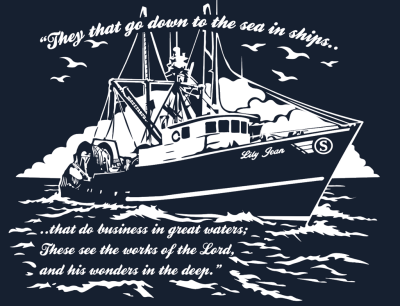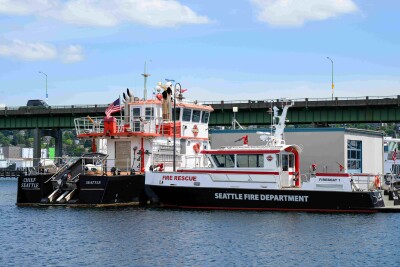Pondering Sarah Palin's impact
Whatever Sen. John McCain was thinking about when he selected Alaska Gov. Sarah Palin as his running mate, you can be sure it wasn't the U.S. fishing industry.
More likely, he was trying to excite the Republican Party's conservative base, and by most assessments, Palin has done just that.
But by the same token, it's hard to ignore the fact that the next vice president of the United States could come from a fishing family and has worked as a salmon fisherman herself.
National Fisherman has never been much for partisan politics. The fishing industry needs all the friends it can get, regardless of which side of the aisle they sit on. But as the sole publication devoted to the U.S. fishing industry, we are obliged to consider the potential positive impacts of a vice president with Palin's résumé on federal fishery policy.
It's hard to say with certainty. Besides inquiring after the president's health, the vice presidential job description varies from administration to administration.
Many observers, for example, cite Dick Cheney as an example of an influential VP. On the other hand, Richard Nixon reportedly mused that no one would ever assassinate him, given that Spiro Agnew was waiting in the wings.
I am not a pundit, so I can't pretend to know what McCain's relationship with Palin will be, should they win the election. But I think it's safe to say that at age 72, after nearly three decades in Congress and eight-plus years of running for president, McCain is not seeking a Dutch uncle as his second in command.
This doesn't necessarily diminish the role of vice president, though, because presidents succeed when they surround themselves with smart people and listen to what they say. It does, however, invite the question of whether Palin has what it takes to come into her own in the West Wing.
That is a question she will answer with her words and actions along the campaign trail and, if the voters are so inclined, in the months and years ahead.
The answer could have real implications for fishermen. Palin knows what it means to fish for a living, hails from the nation's No. 1 seafood producing state and at this point in her career has no doubt developed insights into fishery regulation from the perspective of the statehouse as well as the deckhouse.
McCain, on the other hand, probably doesn't know one end of a boat from the other (unless the boat's gray and 800 feet long). Why wouldn't he consider the advice of a vice president whose strong suit is marine resources (to say nothing of energy)?
Skeptics might suggest that U.S. presidents don't spend much time on fishery management. My response would be that President George W. Bush spent just time enough to declare striped bass a recreational fishery and to close to commercial vessels 140,000 square sea miles in the northwestern Hawaiian Islands. Indeed, Bush has proposed following this up with the closure of up to 900,000 more square miles of the Pacific.
Would having a vice president of Palin's background have made any difference? It certainly wouldn't have hurt.
Reasoning that they would know her as well as anyone, I had conversations, via e-mail and the spoken word, with a handful of Alaska fishermen in the days following Palin's nomination. I found varying degrees of support, more enthusiastic than not so, as well as some concerns, mostly to do with her opposition to the state's so-called "clean water initiative" designed to protect the Bristol Bay watershed from a proposed mine.
Given war in Iraq and Afghanistan, a weak economy and a growing wealth divide, tens of millions of Americans without health care, insecurity about our energy future and the changing nature of America's relationship to the rest of the world, it's tempting to ask ourselves if we're living up to McCain's admonition to serve a cause greater than ourselves if we vote Republican solely because of Palin's presence on the ticket, in hopes that she will have our interests as an industry close to heart.
But that misses the point. In its mechanical essence, the act of voting may be a binary proposition — he or she; yes or no; one or two — but I doubt many of us use a checklist to choose a candidate. Rather, we vote for candidates who, near as we can see — or feel — embody our ideals and share our concerns.
For those of us who have been inclined to vote for McCain all along, I think Palin's presence on the ticket will make the trip to the polls much easier.
For those of us who wouldn't vote for McCain under any circumstances, it's hard to envision us changing our minds on account of Palin.
But I think that those of us who have been leaning toward Sen. Barack Obama — uncertain but intrigued; tilting but not swooning — may now be inclined to think twice before voting for the senator from Illinois.






